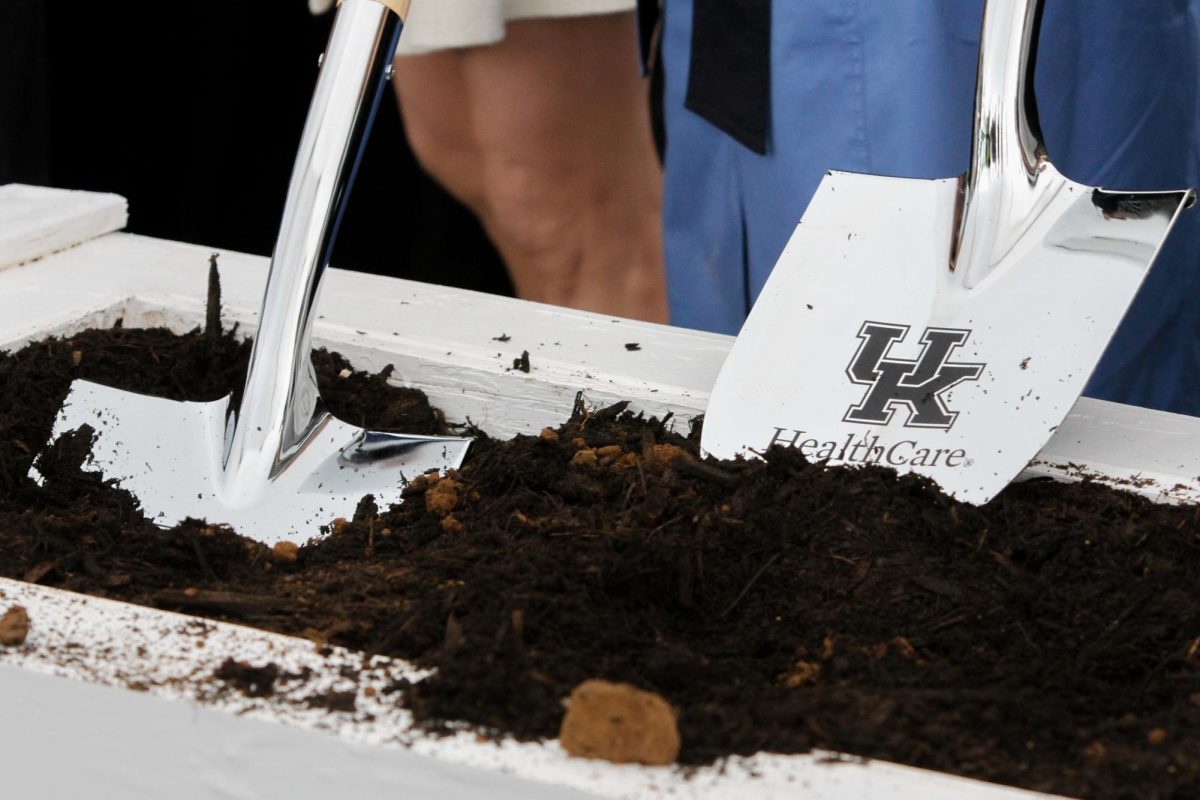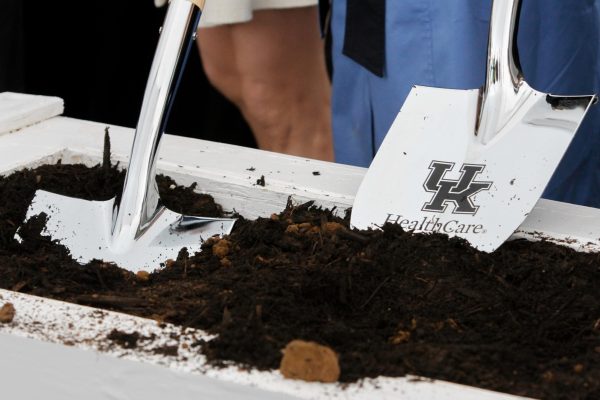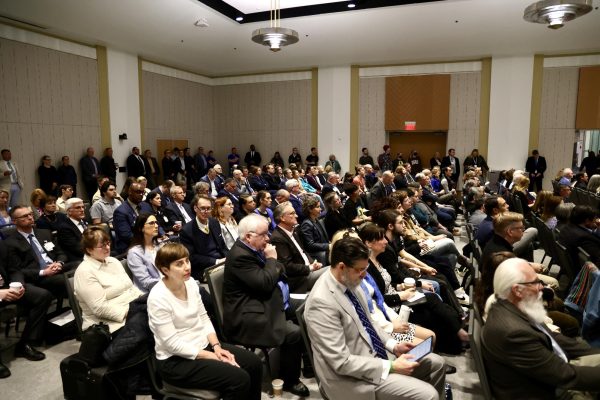College has prescription for excellence

January 26, 2010
A new resident has taken over 789 S. Limestone.
A crowd of around 200, including students, faculty and staff, gathered outside the new College of Pharmacy building for the ribbon cutting ceremony Monday.
The new building, which was completed in December, is the first part of what will be the new academic medical center on Limestone, according to the College of Pharmacy Web site. It has two 219-seat auditoriums, a 110-seat classroom, a 54-seat classroom and cost $132 million to build.
“This facility challenges students and faculty to do more,†said Patrick McNamara, interim dean of the College of Pharmacy.
Gov. Steve Beshear said the building is a milestone for UK.
“Watching the growth on the south end of campus has been such a thrill for me,†Beshear said. “There’s no question that the Commonwealth’s medical campus of the future will be a major catalyst for boosting health and economic development.â€
McNamara said the basement and first three floors of the new facility are complete and operational, but the remaining two floors, which will house laboratory space for research, have not been completed.
“We hope to begin construction on the top two floors in July 2010 and finish toward the end of 2011,†McNamara said. “Initially we had hoped to finish all construction by 2010, but we couldn’t secure funding, so we finished the academic areas first.â€
The college is waiting on a grant from the National Institute of Health to finish the fourth floor, and matching funds from the university will complete the fifth, McNamara said.
Classrooms on the first and second floor feature wireless Internet access and teleconferencing equipment to connect with community-based volunteer faculty throughout Kentucky, McNamara said. The second floor will also have a learning space set up like a clinic where students interact with patient actors, he said.
The third floor will contain faculty offices and research laboratories, and the fourth and fifth floors will house laboratories and offices for research, McNamara said.
Beshear believes these new facilities are important to the future of medicine.
“New research and updated facilities are absolutely essential to help our pharmacists stay abreast of technological innovations,†Beshear said.























































































































































